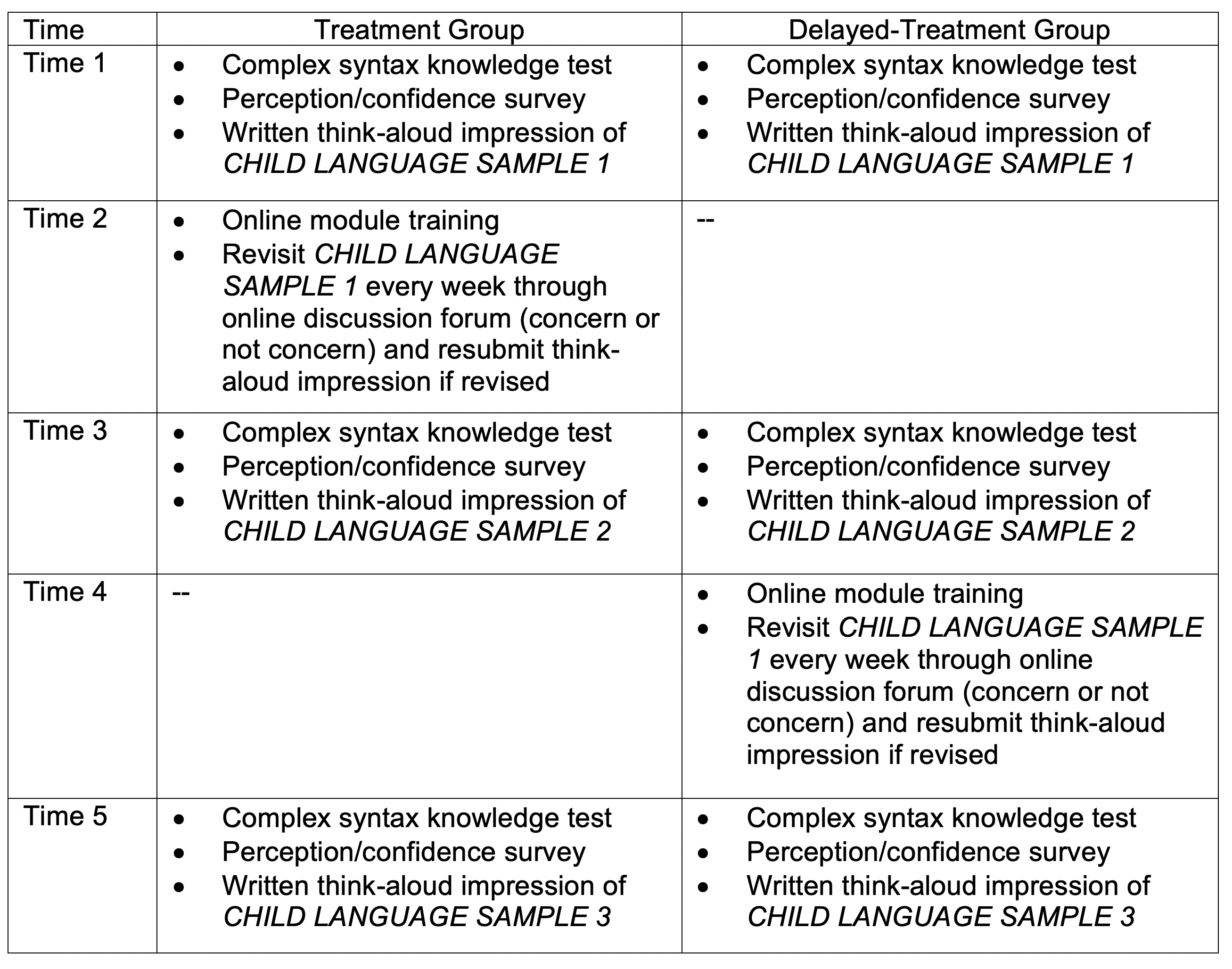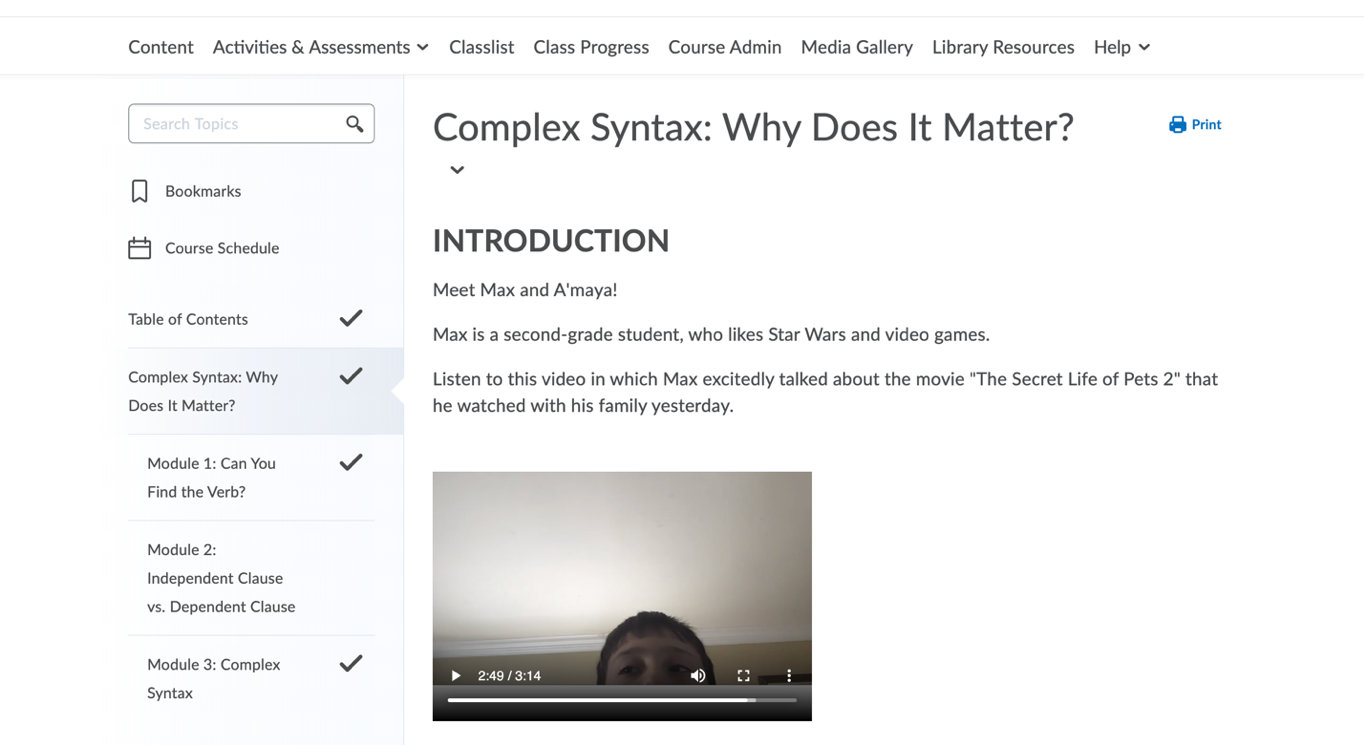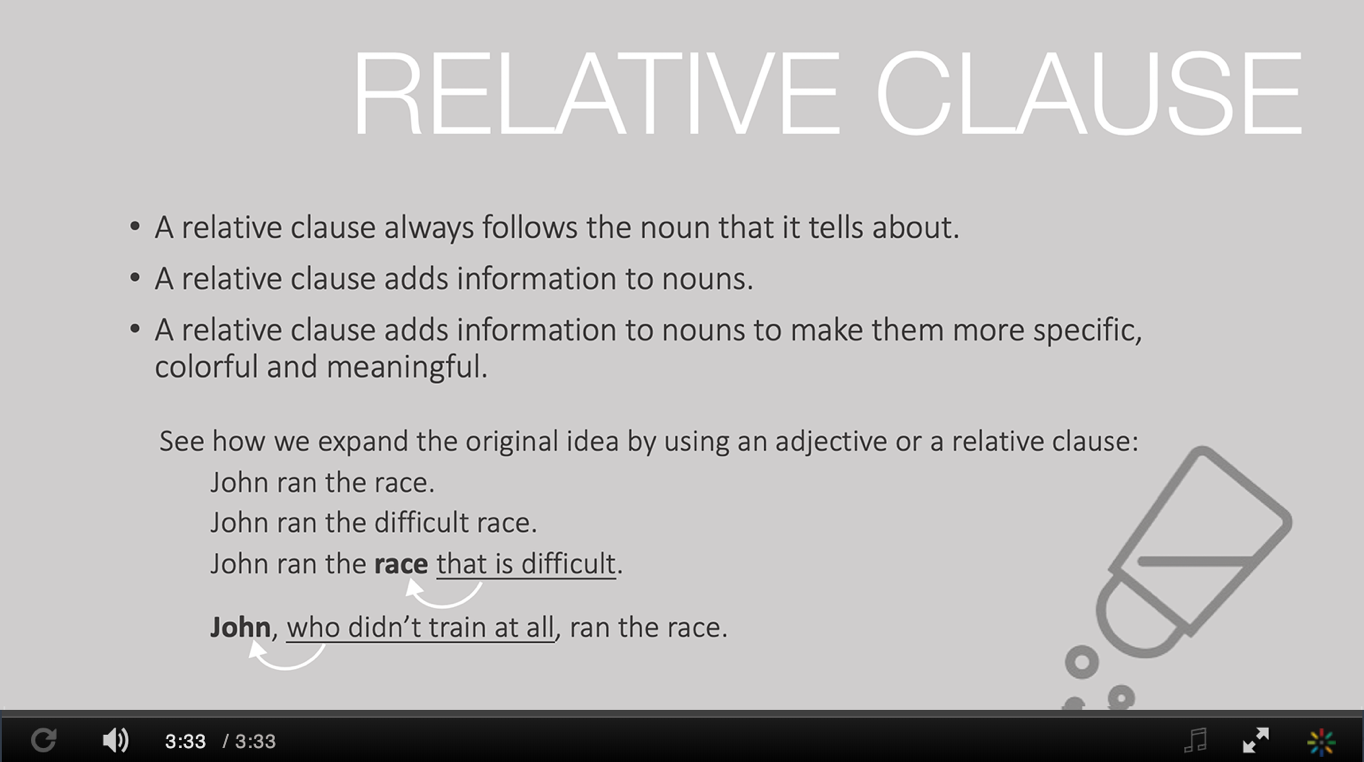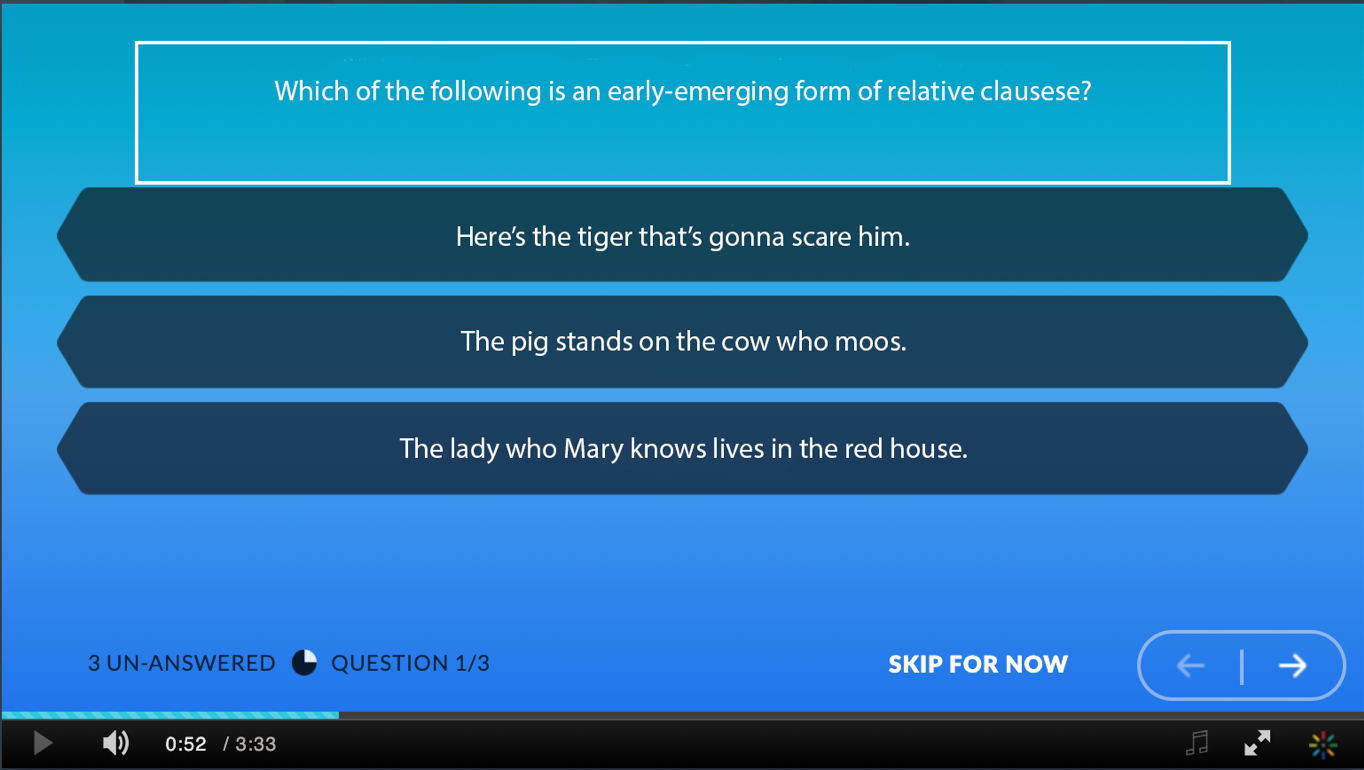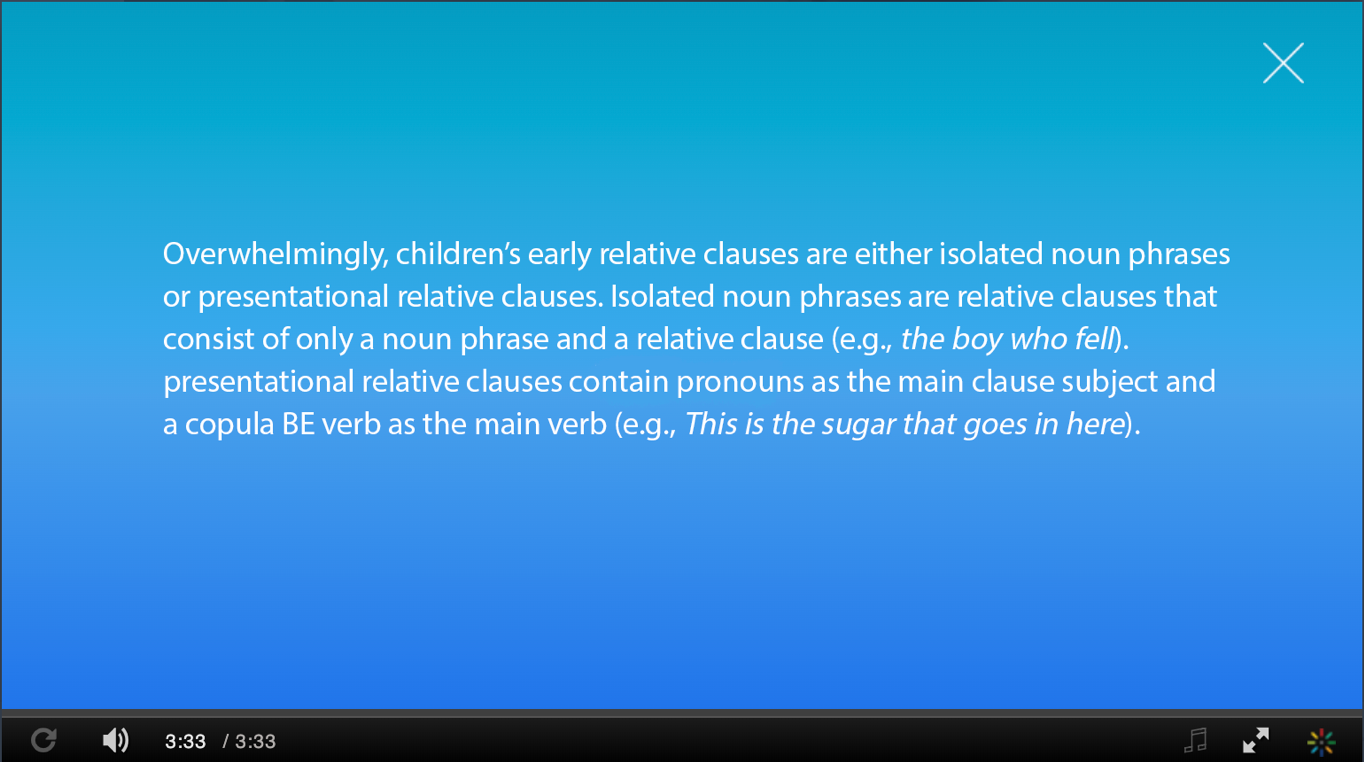SPED 2430: Introduction to Language and Communication & SLP 5280, 81, 82 Child Language Impairment
 Shih-Yuan Liang working with
Shih-Yuan Liang working with
Melanie Schuele, Associate Professor of Special Education, and
Heather Gillum, Adjunct Associate Professor of Special Education
Overview
Understanding grammatical structure broadly, in particular, complex syntax (i.e., sentences with more than one clause/verb) is a challenging concept to many college students who pursue a career in education or communication sciences. Special educators and speech-language pathologists (SLPs) often work with children who have spoken and/or written language deficits. Thus, the ability to analyze child complex syntax use and generate meaningful interpretations is essential. Unfortunately, students in the education programs and in the SLP master program often reported having limited formal study of the grammar of English or a foreign language before college. Traditional, face-to-face instruction in the college classroom does not seem to effectively narrow this knowledge gap. To address this teaching-learning problem, we designed an online training module to support traditional lecture- and lab-based learning activities of complex syntax analysis. Students advance through the online module at their own pace. Hence, the traditional, face-to-face instructional time can be used for targeting difficult concepts and applying the working knowledge to clinical case discussion.
Research Questions
- Do students who complete an online complex syntax module show greater gains in their pre- and post-training assessment scores on complex syntax knowledge as compared with their peers who do not participate in the online learning activities?
- Do students who complete an online complex syntax module show better quality of think-aloud (i.e., clinical impression) when asked to analyze a child spoken language sample as compared with their peers who do not participate in the online learning activities?
- Are students who complete an online complex syntax module able to describe the importance of complex syntax analysis in their future practice and find positive value in their learning?
- Does the online module increase students’ level of confidence in analyzing the grammatical structures in children’s spoken and written discourse from pre-training to post-training?
Module Development
The module is primarily hosted on Brightspace and comprises four mini-modules, targeting verb identification, T-unit composition (e.g., independent clause and dependent clause), complex syntax types, and interpretation of complex syntax analysis respectively. This module is designed to capitalize on retrieval-based learning (Karpicke, 2012) and formative assessment.
Assessment of the Module Effectiveness
Procedures. Thirty students enrolled in SPED 2430 Introduction to Language and Communication and SLP 5280, 81, 82 Child Language Impairment complete the online module in the 2020 fall semester. We randomly assign students to treatment (n = 15) and delayed treatment group (control; n = 15).
